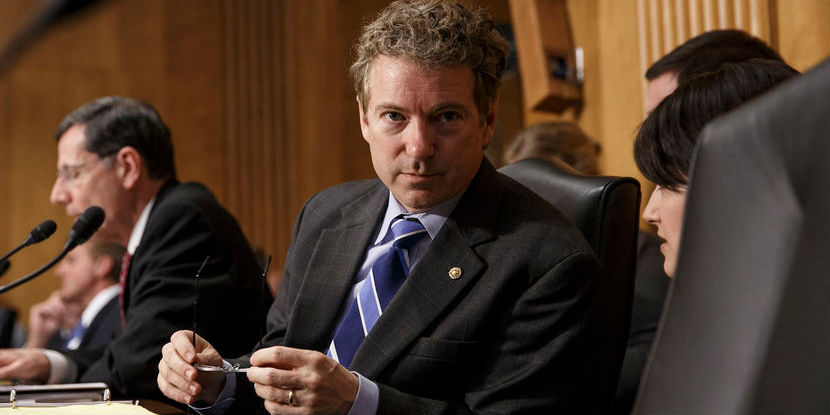The Washington Post’s Zachary A. Goldfarb wrote Wednesday, “Sen. Rand Paul (R-Ky.) wasn’t on the ballot Tuesday, but he still emerged as one of the night’s biggest winners.”
Videos by Rare
Goldfarb noted that although voters went strongly for Republicans, majorities also supported more lenient marijuana laws in the District of Columbia and two states (even in Florida, where an amendment to legalize medical marijuana did not pass, the measure still got 58 percent).
It’s an instructive observation. Why would ballot initiatives traditionally associated with the left do so well at the same time Republicans swept Congress and state elections?
For the same reason recent polls show Millennials are fed up with Democrats, but don’t really like Republicans either. For the same reason Americans are more accepting of same sex marriage than ever. For the same reason most Americans think the war on drugs is a failure. For the same reason there are more self-identified independents than ever.
For the same reason GOP candidates have wanted to appear with Rand Paul more than any other Republican this election.
There are things Americans like about both parties and things they don’t like. If voters are fed up with Obama and the Democrats’ big government promises (Goldfarb notes, “Exit polls released Tuesday showed that Americans still have quite a bit of philosophical skepticism about government. Just a fifth of voters said they trust the government in Washington to do what is right most of the time.”), they also want little to do with a GOP that tells people how to live their lives.
Libertarians have various opinions on social issues, but their defining feature is a refusal to dictate people’s lives.
Few if any Republicans this cycle branded themselves culture warriors, instead just focusing on the current administration and unpopular policies like Obamacare. If George W. Bush’s promise to keep same sex marriage illegal in 2004 helped deliver him a second term, Republicans today (at least those trying to win elections) are mostly silent about that issue. Michelle Bachmann says it’s boring and “not an issue.”
The law-and-order, tough-on-crime Republicanism of Richard Nixon and Ronald Reagan is becoming a memory. Today, some of the most prominent advocates for drug sentencing and prison reform can be found on the right. Rick Perry says conservatives should be trying to shut down prisons. Newt Gingrich does too. Pat Robertson wants to legalize marijuana.
Republican candidates were eager this election to be seen with a GOP leader who could excite the conservative base, but also could reach beyond it. Republicans wanted to attract independents, youth and hopefully more minority voters.
Among prominent Republicans, particularly those who might be running for president in 2016, only one GOP leader really fit this bill.
Rand Paul is a libertarian Republican—a political creature known to be better than most conservatives on bedrock small government, pocketbook issues but also markedly different from many in his party on other, more meddling issues that have become a turnoff to a broad swath of Americans.
Goldfarb observed, “If this is a libertarian moment — well, a mostly libertarian moment — it could be Paul’s.”
But could it be more than just a moment? Maybe it’s a trend?
When Washington, DC voted to legalize marijuana Tuesday, Rand Paul said Congress should stay out of it and voters should decide. Another Republican said he would do what he could to reverse the decision and recriminalize it.
Which kind of Republican do you think Americans might like better in 2016?
Disclosure: I co-authored Senator Rand Paul’s 2011 book The Tea Party Goes to Washington.



